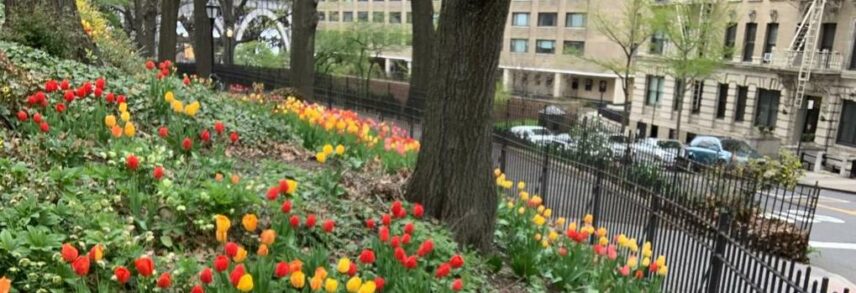Article begins
What’s in a AAA section name? Shakespeare’s Juliet claimed a rose by any other name would smell as sweet. Alas, the Bard seems not to have been exposed to semiotic theory, nor did he anticipate the ecological, economic, gendered and racialized abuses of the global floriculture industry. For the flowers known as roses, and the names they are called, convey multiple and contradictory meanings to different audiences at different places and times. A similar process of lexical-semantic contestation took place last spring in the Society for Urban, National and Transnational/Global Anthropology, whose members voted to approve a proposal to change the section’s name to the Critical Urban Anthropology Association, or CUAA.
The question of whether SUNTA should change its name was first posed by Jeff Maskovsky at the section’s virtual board meeting in October 2020. Over several hours, board members considered a number of new names as well as the option of retaining the existing name: they ultimately voted unanimously to propose the new name of CUAA. This proposal was then endorsed by the wider membership at the SUNTA business meeting during the Raising Our Voices conference in November. More recently, section members were invited by Suzanne Scheld to discuss the name change at a virtual “tea circle” in April 2021. At all these gatherings, it became clear that the proposed renaming reflects and responds to a number of institutional and intellectual challenges facing the section and its members.
Historical background
The AAA section currently known as SUNTA was founded in 1979 as the Society for Urban Anthropology. Although anthropologists had been doing research in and about cities for decades, the stereotypical association of anthropology with “primitive,” nonurban others remained prevalent, making the collocation urban anthropology still seem novel and counterintuitive at that time. The founding of SUA was thus seen to promote a progressive vision of anthropology that paid critical attention to colonialism, modernity, inequality, and political economy. Twenty years later, the section was renamed the Society for Urban, National and Transnational/Global Anthropology, to emphasize the rethinking of the urban in light of theories of globalization that burgeoned in the late-twentieth century. In the ensuing two decades, SUNTA has helped to make both the AAA and the field of anthropology more attentive to the translocal, multi-scalar forces and processes that permeate the day-to-day lives of the people and places we work in and study.

Today, as past president Jeff Maskovsky has observed, SUNTA seems to have become a victim of its own success, for what made it distinctive at the turn of the millennium––its orientation not just as urban, but also simultaneously national, transnational, and global––has become de rigueur in the discipline at large. What anthropological research these days does not address the national, transnational, or global? At the same time, urban studies in anthropology has blossomed in ways that exceed that formulation, engaging critical social theory to become a dynamic interdisciplinary field. The name Critical Urban Anthropology Association indexes and responds to these developments, re-centering the urban in order to make the section’s mission and interests legible to a wide audience of anthropologists and other scholars.
Benefits of a name change
Proponents of CUAA anticipate that the new name will benefit the section in several ways.
Clarifying the section’s identity and purpose. The identity of the section as the primary space for advancing urban research within anthropology will be solidified with the name change. The new name will be easier to say, explain, and understand.
Signaling an orientation towards critical social theory. The “critical” in critical urban anthropology marks an intellectual space that moves beyond conventional urban studies. It signals a fundamental interest in reconsidering the urban question within critical social theory, locating the status of urbanization, urbanism, migration, movement, space, place and other urban matters within decolonial, antiracist, feminist, queer, anticapitalist and other intellectual and activist projects.
Building membership. Like other sections, SUNTA has been losing members in recent years. The new name is designed to help reverse this trend by signaling an intellectual revitalization of the section and a reconsideration of urban research in light of contemporary theoretical and ethnographic work. The new name is popular with current members and will hopefully appeal to graduate students and early career scholars seeking intellectual community and political solidarity.
Strengthening ties to the journal. The new name will bring the intellectual mission of the section into closer alignment with that of its journal, City and Society. Since its founding in 1987 by members of SUA, C&S has thrived as a forum for publishing critical urban research from an anthropological perspective. As a partner to CUAA, the journal will play a crucial role in promoting a greater diversity of critical voices within the section, the AAA, and anthropology at large.
The struggle continues
Black feminist theorist Patricia Hill Collins has argued that no theoretical label can adequately convey the diverse range of meanings, experiences and strategies it purports to represent. For Collins, debates over terms like womanism and Black feminism are important not because the names themselves have intrinsic value, but because those debates can help to elucidate the intellectual and material struggles going on within and outside the privileged space of academia.
In light of Collins’ advice, changing from SUNTA to CUAA (like the previous change from SUA to SUNTA) can be productively understood not as a rejection of the earlier name, but as a historically contingent response to current struggles in anthropology and the wider world. Indeed, one might hope that, in twenty years’ time, what are now called “critical” frameworks might be perceived as commonplace, in which case some might call for another name change––or something else altogether.

